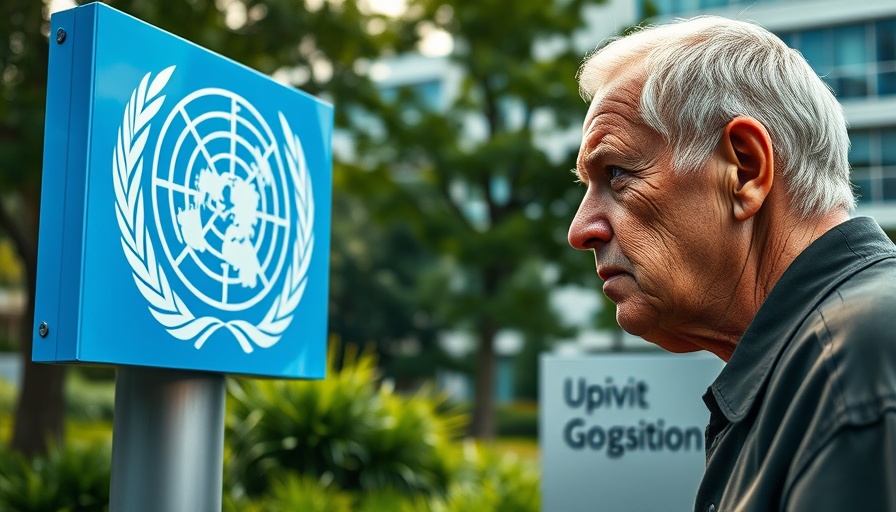
Understanding the U.S. Rejection of WHO Health Regulations
In a significant move, the United States has officially rejected the World Health Organization’s (WHO) 2024 amendments to the International Health Regulations (IHR). This decision, announced jointly by U.S. Secretary of Health and Human Services Robert F. Kennedy Jr. and Secretary of State Marco Rubio, underscores concerns about national sovereignty and individual rights in the face of increasing global health oversight. The amendments, had they been accepted, would have granted the WHO unprecedented authority over national health policies, allowing unelected officials to dictate responses to health emergencies, including lockdowns and vaccine documentation.
The Implications of Global Health Governance
This rejection is not an isolated incident. Countries such as Austria, Italy, and Israel have similarly blocked these amendments, prioritizing local control and constitutional protections over the reach of global bureaucracy. Governments are emphasizing the need for health decisions to stay within their borders and protect citizens from what they view as an encroachment on civil liberties. By resisting these changes, these nations are asserting their right to govern public health according to their laws and priorities.
What Would the Amendments Mean for Citizens?
If approved, the amendments could have introduced broad, vague terms that allowed the WHO to intervene in national emergency responses. This might include controlling digital health surveillance tools and managing public health narratives—all enacted without public debate or legislative oversight. Such policies could pose a threat to individual rights to privacy, health autonomy, and freedom of movement. Citizens could find themselves subject to health directives that bypass national laws, provoking serious concerns about free speech and democratic governance.
A Closer Look at the Proposed Changes
The amendments aimed to address perceived weaknesses in global health governance but raised alarms about overreach. Critics argue that empowering an international body with the authority to dictate health measures infringes on national sovereignty. With language that could permit sweeping actions while evading accountability, it's clear why nations are stepping back. The potential for unchecked censorship and narrative control under the guise of public health needs to be critically examined.
Next Steps for Individuals
While the formal rejection has occurred at the governmental level, individuals can still play a crucial role. Staying informed about local health policy positions and advocating for national autonomy is vital. Engaging in discussions with local representatives and understanding where your country stands can help protect personal freedoms from the implications of global health governance. Organizing community awareness and discussions about this topic can empower individuals and encourage action.
A Broader Context: Localism vs. Globalism in Health Policy
This situation reflects a broader tension between local and global governance, particularly in health. As nations grapple with how best to respond to pandemics and public health crises, the push for more localized decision-making continues. Proponents of localism argue that health policies are best dictated by those who understand the community needs, rather than by distant organizations that may not grasp the nuances of local health challenges.
Connecting with Others: The Power of Community
Connecting with others concerned about national health autonomy can amplify voices that demand accountability and transparency in health regulations. By sharing information, engaging in community discussions, and organizing grassroots efforts, individuals can make a significant impact in advocating for personal freedoms against encroaching global health mandates. The importance of community and collective action cannot be overstated in times of global uncertainty.
Future Predictions: Trends in Health Governance
As the world continues to grapple with health challenges, one can anticipate further debates over the appropriate balance between global health governance and national sovereignty. With advancements in technology and medicine, the pressure for an international approach to health issues may increase; however, ongoing resistance from nations can shape a future where local health authorities maintain significant control over health policies.
In conclusion, understanding the implications of the U.S. rejection of the WHO amendments underscores a critical moment in health governance. An engaged citizenry is essential to uphold the ideals of national sovereignty and civil liberties concerning health. Recognizing the impact of global health mandates on individual rights can compel further scrutiny and debate, fostering a health policy environment that prioritizes personal freedoms.
If you’re concerned about these developments, stay informed, engage your local representatives, and advocate for policies that protect health autonomy. Your voice matters.
 Add Row
Add Row  Add
Add 




Write A Comment